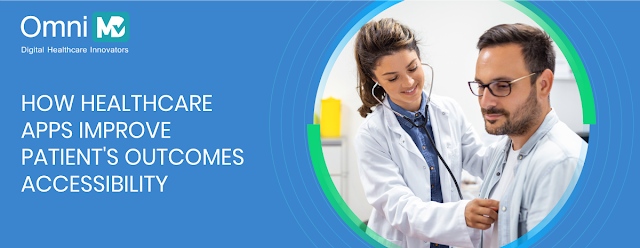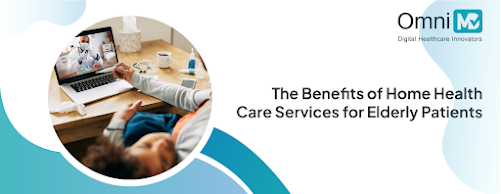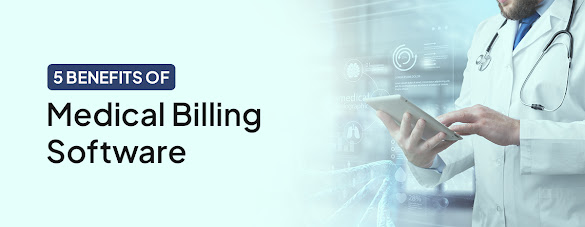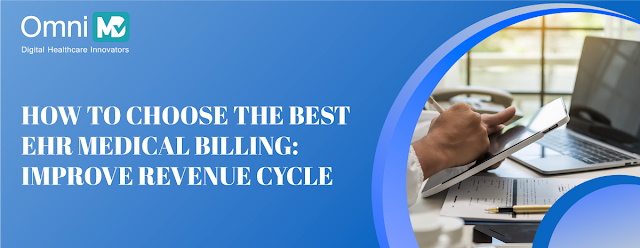How Healthcare Apps Improve Patient's Outcomes and Accessibility
In
today's digital age, healthcare apps have transformed how patients access and
receive medical care. From remote monitoring to personalized treatment plans,
Healthcare Apps are crucial in improving patient outcomes and enhancing
accessibility to medical services.
According to Verified Market Research, revenue from health apps is expected to grow to $35.71 billion by 2030 at a CAGR of 20.02%. A major factor contributing to higher usage of healthcare apps is the COVID-19 pandemic which has led to the shift from traditional face-to-face consultations to virtual meetings which has increased the healthcare app downloads and subscriptions.
Let's delve deeper into the various aspects of healthcare apps in the modern healthcare landscape.
What is a Healthcare App?
Healthcare
apps are software applications designed to help users manage their health and
wellness. The Healthcare App Development can range from fitness trackers to
platforms that connect patients with healthcare providers for virtual
consultations. Healthcare apps are also known as mobile health (mHealth) apps.
Importance of Healthcare Apps in
Modern Healthcare
● Improving Patient Outcomes
One of the primary benefits of healthcare apps is their ability to improve patient outcomes. Features such as Remote Patient Monitoring and management allow patients to track vital signs, medication adherence, and overall health progress. Such real-time data allows healthcare providers to provide their service promptly and adjust treatment plans as required which leads to better health outcomes.
● Enhancing Accessibility to
Healthcare Services
Healthcare apps also bridge the gap in healthcare accessibility, especially for individuals in remote or village areas. By providing 24/7 access to medical advice, telemedicine consultations, and health information, these apps ensure that patients can receive timely care irrespective of geographical challenges.
● Reduced Diagnostic Errors
Modern healthcare apps are equipped with intelligent diagnostics which reduces errors by providing precise and timely information. It supports physicians in making informed decisions and advice on potential medications, which ensures safer diagnoses.
● Efficient Medical Report
Access
Healthcare apps allow seamless collaboration and communication between providers which is enabled by secure storage and sharing of comprehensive medical data which leads to better clinical decisions and care continuity.
● Health Tracking Tools
Integration of health monitoring features in healthcare apps allows the analysis of physical activity, nutrition, and sleep patterns which facilitates lifestyle adjustments for better health.
● Global Healthcare Collaboration
Apps facilitate real-time collaboration among doctors worldwide which enhances medical care through continuous information sharing and consultations.
● Facility of Telemedicine
Patients can access medical advice remotely which minimizes unnecessary hospital visits for routine check-ups and consultations. Hence, a healthcare app can give relief to seriously bedridden patients and allow them to access medical consultations from the comfort of their homes.
● Emergency Assistance
Some healthcare apps offer integration with emergency services, which allows quick access to medical assistance during critical situations and enhances user safety.
● Customised Patient Care
Healthcare app allows practitioners to customize treatments based on individual medical histories which streamlines care for large patient volumes. Efficient data navigation for doctors and hospitals ensures targeted treatment plans.
Key Features of Effective
Healthcare Apps
An effective healthcare app development should include:
● User-friendly Interface
A user-friendly interface is essential to ensure that patients can navigate the app easily and access the features they need without confusion.
● Integration with Electronic
Health Records (EHR)
Integrating healthcare apps with EHR Software systems allows physicians to access comprehensive patient data which leads to more informed decision-making and customized care.
● Telemedicine Capabilities
Telemedicine capabilities of healthcare apps enable virtual consultations and remote monitoring. It enhances the accessibility and convenience of healthcare services for patients.
Challenges and Solutions in
Healthcare App Development
Like
every technology-driven system, Halthcare Apps for Patients also comes with
their own challenges. However, such challenges are overcome through precise, technologically integrated solutions.
● Data Privacy and Security
Ensuring data privacy and security is a significant challenge in healthcare app development. It requires the implementation of robust encryption protocols and compliance with regulatory standards to mitigate these risks.
● Interoperability with
Existing Systems
Integration with existing EHR systems and healthcare infrastructure is crucial for seamless data exchange and continuity of care. Standardized protocols and interoperability frameworks can address this challenge.
● User Engagement and Retention
Strategies
Sustaining user engagement and retention is essential for the long-term success of healthcare apps. Strategies such as personalized content, gamification, and feedback mechanisms can enhance user experience and loyalty.
Best Practices for Using
Healthcare Apps
Utilising
the healthcare app in the right way is the key to capitalise on its various
benefits. Have a look at factors considering to choose a suitable healthcare
app.
● Choosing the Right App for
Specific Needs
Patients should select healthcare apps that align with their health goals, preferences, and conditions which ensures relevance and effectiveness of medical care.
● Ensuring Data Privacy and
Security
Users must prioritize apps that adhere to strict data privacy regulations and implement robust security measures to protect sensitive health information.
● Regular Updates and
Maintenance
Healthcare apps should receive regular updates and maintenance to address bugs, improve performance, and incorporate new features based on user feedback and technological advancements.
Final Thoughts
Healthcare
apps have become invaluable elements in modern medical scenarios as it is
transforming patient care with quick accessibility to medical services. As
technology continues to evolve, these apps will play an increasingly important
role in delivering customized and efficient healthcare solutions.




Comments
Post a Comment